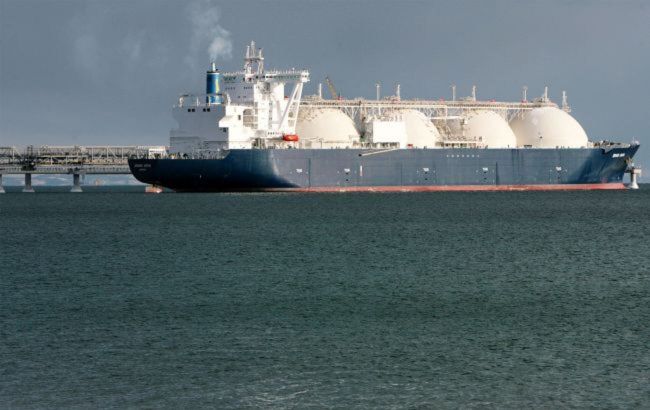US and EU pressure Asian countries over purchases of Russian oil and gas - Reuters
 Photo: liquefied natural gas tanker (Getty Images)
Photo: liquefied natural gas tanker (Getty Images)
The United States and European countries are stepping up pressure on Asian importers of Russian energy.
According to Reuters, these efforts could begin limiting India’s oil imports as early as December while potentially driving down energy prices for China.
According to traders and analysts, Japan is unlikely to halt imports of liquefied natural gas (LNG) from the Sakhalin project, though Washington is pressing Beijing, New Delhi, and Tokyo through trade negotiations to scale back purchases of Russian oil and LNG.
The United Kingdom recently imposed sanctions on several Chinese and Indian firms, and the European Union may follow suit. Western governments argue that Moscow is using its energy revenues to finance the war against Ukraine.
Data from analytics firm Kpler show that seaborne shipments of Russia’s key crude grades to China and India could rise to around 3.1 million barrels per day in October, the highest level since June. Senior analyst Mu Yuxiu from Kpler forecasts that high import levels will likely persist into November due to a surge in Russian exports.
She noted that Britain’s sudden sanctions on Chinese and Indian refineries, combined with the threat of further restrictions from the EU or US, may prompt buyers to act more cautiously when placing new orders until the situation becomes clearer.
India's position
A White House representative said Thursday that Indian refiners are already cutting Russian oil imports by 50%. However, Indian sources told Reuters that no visible reduction has yet occurred and that any decrease might become evident only in December or January.
Consulting firm FGE estimates that roughly 700,000 barrels per day are tied to long-term contracts, meaning India cannot immediately halt purchases even if it wishes to. The firm projects that short-term spot volumes of 0.8–1 million barrels per day are the only ones at risk.
Analysts say China could seize the opportunity to buy additional discounted Russian oil if India scales back. Meanwhile, Indian refineries have started diversifying, including purchasing crude from Guyana to reduce potential risks.
Sanctions on Nayara and Yulong
The UK sanctioned India’s Nayara Energy refinery and China’s Yulong Petrochemical, which operates a 400,000-barrel-per-day plant in Shandong province. According to Kpler, the British government has allowed Yulong to complete existing contracts by November 13, but it remains unclear whether the company can establish new supply chains to circumvent the sanctions.
Market analyst June Guo of Sparta Commodities said that the UK sanctions are unlikely to severely impact Yulong unless similar measures are introduced by the EU or the US.
At the same time, Russian oil product shipments to Taiwan have declined following NGO criticism of ongoing trade ties with Moscow. Traders add that Ukrainian attacks on Russia’s energy infrastructure, along with Moscow’s partial export ban on gasoline and diesel, are already reducing Russian fuel exports.
Japan's LNG dilemma
The US has urged Japan to end imports of Russian energy ahead of President Donald Trump’s planned visit to Asia later in October. Tokyo, aligned with the G7, has pledged to gradually cut oil imports from Russia but retains a long-term exemption for Sakhalin-2 LNG supplies.
Ending these contracts early would trigger massive penalties, said Yuri Humber, head of Tokyo-based consultancy Yuri Group. Replacing the volumes, around 6 million tons of LNG per year, on the spot market would be "extremely difficult and costly."
Russian LNG, which accounts for roughly 9% of Japan’s imports, remains a critical supply source, said Kingo Hayashi, head of Japan’s Federation of Electric Power Companies.
Anne-Sophie Corbeau of Columbia University’s Center on Global Energy Policy noted that Washington must adopt a consistent approach: "On one hand, the US pressures allies to stop Russian LNG imports, but on the other, it hasn’t imposed full sanctions on the Arctic LNG 2 project."
Sanctions context
Earlier this week, President Donald Trump claimed that India had agreed to stop purchasing Russian oil, a statement later denied by India’s Foreign Ministry.
US Treasury Secretary Scott Bessent said Washington expects Japan to fully phase out Russian energy imports, while some Indian refiners are preparing to gradually reduce their purchases.

